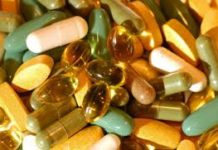Biotin is a water-soluble vitamin and member of the B-complex family. Originally isolated in 1901, over the years numerous researchers attached different names to this nutrient, referring to it alternately as bios, vitamin H, protective factor X, and coenzyme R. Today the scientific name for this sulfur-bound vitamin is biotin.
Biotin is an essential nutrient that is required for cell growth and for the production of fatty acids. Biotin also plays a central role in carbohydrate and protein metabolism and is essential for the proper utilization of the other B-complex vitamins. Biotin contributes to healthy skin and hair, and may play a role in preventing hair loss.
A biotin deficiency of is rare, as biotin is easily synthesized in the intestines by bacteria, usually in amounts far greater than are normally require for good health. Those at highest risk for biotin deficiency are people with digestive problems that can interfere with normal intestinal absorption, and those taking antibiotics or sulfa drugs, which can inhibit the growth of the intestinal bacteria that produce biotin. Consuming raw eggs in large amounts over a prolonged period can contribute to biotin deficiency, as eggs whites contain a protein called avidin, that binds to biotin and interfere with its absorption. This is not a problem when consuming cooked eggs, which are a good dietary source of biotin.
Some symptoms of biotin deficiency are depression, lethargy, eczema, dermatitis, anorexia, nausea, vomiting, inflammation of the tongue, and muscle pain. Infants with seborrheic dermatitis, evidenced by dry and scaly face and scalp, may also be suffering from a biotin deficiency.
The adult Recommended Daily Allowance for biotin is 300 micrograms. Natural sources highest in biotin include liver, egg yolks, brewer’s yeast, salt-water fish, milk, soybeans, and rice. Biotin is also found in virtually all B-complex supplements in doses ranging from 25 micrograms to 300 micrograms. There are no known toxic levels or symptoms for biotin.













